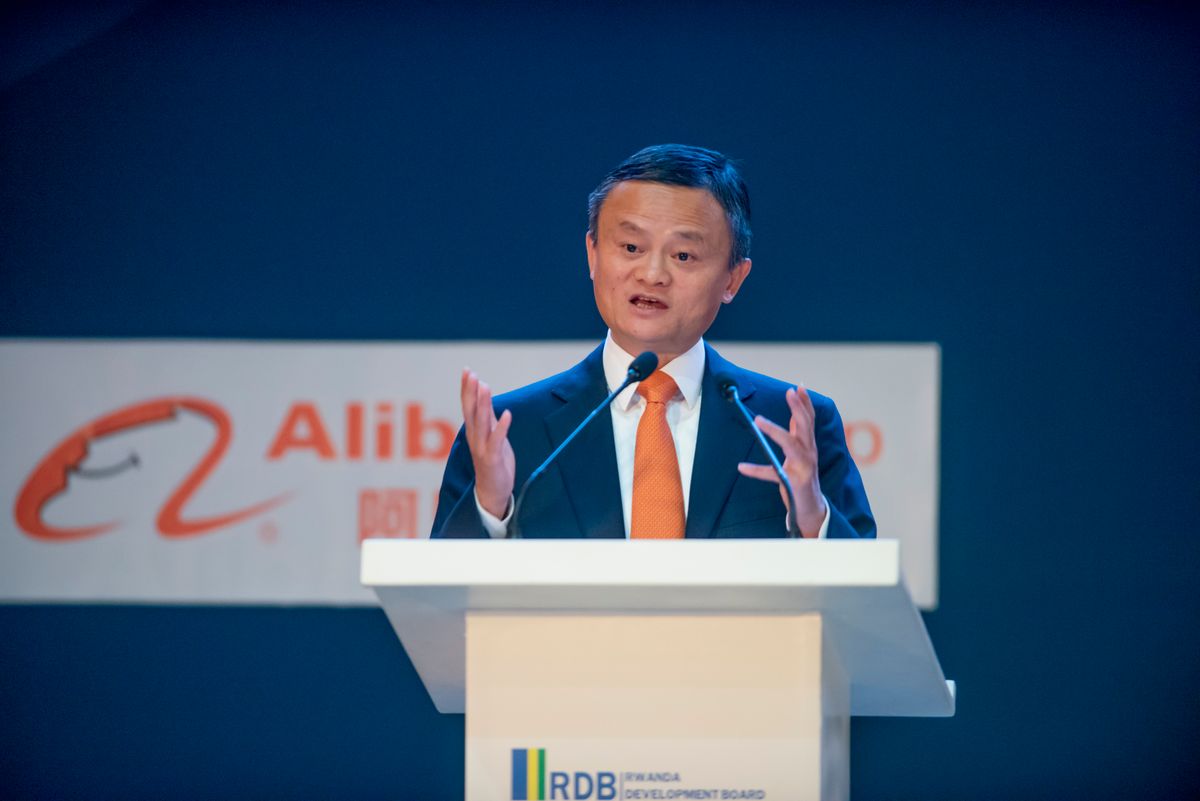Alibaba Founder Jack Ma Returns as Company Announces Major Restructuring

The Lede: Alibaba's share price surged following the announcement of the company's decision to split into six units and consider fundraising or listings for most of them, as China signs for regulatory support for the tech industry and private businesses, following a two-year crackdown.
What we know:
- On Tuesday, Alibaba's shares jumped over 14% in New York and continued to rise on Wednesday in Hong Kong – up by more than 13%, after its U.S-listed shares had plummeted by 70% earlier due to the restrictions enforced since 2020.
- The increase comes as Alibaba's founder, Jack Ma, who has been out of the public eye for the past three years, reportedly reappeared in China this week after a prolonged absence.
- He is one of the most notable Chinese billionaires to vanish in the midst of a crackdown on technology entrepreneurs. Following his criticism of China's financial regulators in 2020, Ma has kept a low profile.
- A day after the CEO’s appearance the Chinese e-commerce conglomerate announced that it will undergo the most significant restructuring in its 24-year history by breaking up the business into six units and exploring fundraising or listings for most of them.
- The six business units will have their own CEOs and boards of directors. Alibaba will retain full ownership of the online retail platform Taobao Tmall Commerce Group, while other businesses will have the flexibility to seek outside capital and potential initial public offerings. Meanwhile, Zhang will remain the chairman and CEO of Alibaba Group, which will adopt a holding company management structure and also act as the CEO of Cloud Intelligence Group – one of the newly-formed six units.
The background: Since 2020, China has implemented a series of regulations aimed at curbing the power of its big tech companies. These regulations include increased scrutiny of mergers and acquisitions, stricter data privacy rules, and antitrust investigations. There has also been a crackdown on the use of unfair business practices such as forced exclusivity and price fixing. These measures have impacted not only domestic tech giants like Alibaba and Tencent but also foreign companies operating in China such as Apple.
Ant Group, Ma’s fintech company, had to cancel its massive listing in Hong Kong and Shanghai. Following the cancellation, Ma criticized China's financial regulator. Afterwards, Beijing tightened regulations on the domestic sector, and Alibaba, the company Ma founded, was fined $2.6 billion for antitrust violations in 2021.
The tighter regulatory oversight caused the industry to become more cautious, leading to a decrease in deals. But recently, the government has been adopting a more lenient approach towards the private sector as officials aim to stabilize an economy that has been adversely impacted by strict COVID-19 restrictions over the past three years. Regulators are encouraging private companies to contribute to job creation and economic growth in order to address the impact of the pandemic.
Likely outcomes/Takeaway:
- Chinese government’s less harsh approach to big tech companies in recent months might indicate a shift from being restrictive to being supportive of private enterprises.
- Jack Ma’s sudden return could also be a sign that Beijing is warming up to the tech giants – much-needed change as the country's economy struggles to revamp.
- Alibaba’s restructuring can be perceived as a positive move for the company because it allows each of its business units to expand independently and avoid being subject to government curbs. It also indicates the resolution of regulatory concerns and alleviates fears that the company had reached its growth potential.
Quotables:
- "The original intention and fundamental purpose of this reform is to make our organization more agile, shorten decision-making links and respond faster." – Chief Executive Daniel Zhang.
- “The previous restrictive policies on the platform and internet sector are also expected to be adjusted.” – Zhang Zihua, chief investment officer at Beijing Yunyi Asset Management told Reuters.
Good Reads:
China's Alibaba to break up empire into six units as Jack Ma returns home (Reuters)
Alibaba’s restructuring and Jack Ma’s homecoming are all part of China’s plan (CNN)
Alibaba founder Jack Ma back in China after months abroad in sign Beijing may be warming to tech (CNBC)



